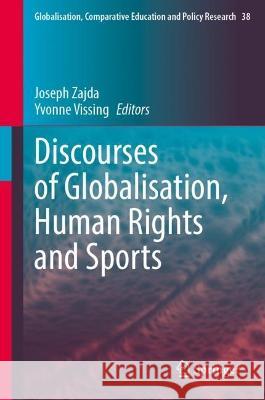Discourses of Globalisation, Human Rights and Sports » książka
topmenu
Discourses of Globalisation, Human Rights and Sports
ISBN-13: 9783031383014 / Angielski / Twarda / 2023
Discourses of Globalisation, Human Rights and Sports
ISBN-13: 9783031383014 / Angielski / Twarda / 2023
cena 563,56
(netto: 536,72 VAT: 5%)
Najniższa cena z 30 dni: 501,19
(netto: 536,72 VAT: 5%)
Najniższa cena z 30 dni: 501,19
Termin realizacji zamówienia:
ok. 22 dni roboczych.
ok. 22 dni roboczych.
Darmowa dostawa!
This book discusses major discourses of performing sports within human rights. Research findings data demonstrate that sports is an inequitable field today that has the potential to be a social change agent. There is more discussion about rights violations and what the fields of sports can do to be more rights-respecting, but the discussions are at a surface, rather than analytic level for most sports organizations.
In sports, culture and human rights, as an emerging field, it is important to develop well crafter theoretical, methodological, and pedagogical body of knowledge. There is an academic discipline of sport that showcases its interdisciplinary nature. Linking sport to the field of human rights will require theoretical, methodological, and pedagogical evolution in this new discipline. There are both organizational, environmental and individual factors associated within the nexus of sports, athletes and human rights.
This book links together sports and human rights in a systematic and analytical way. It contains chapters that discuss human rights policies in performing sports, from both organizational and interpersonal perspectives. The book focuses on the benefits of sports and the human rights and safety challenges within the operations of sports organizations and their impact on individual players.











